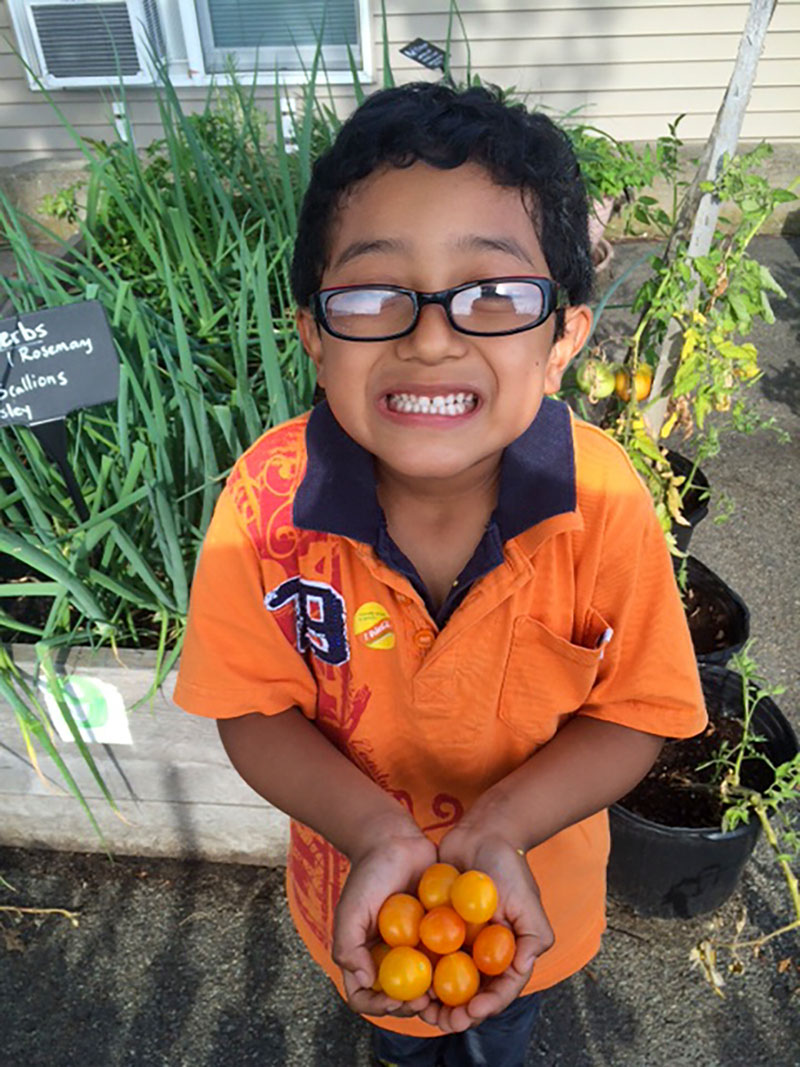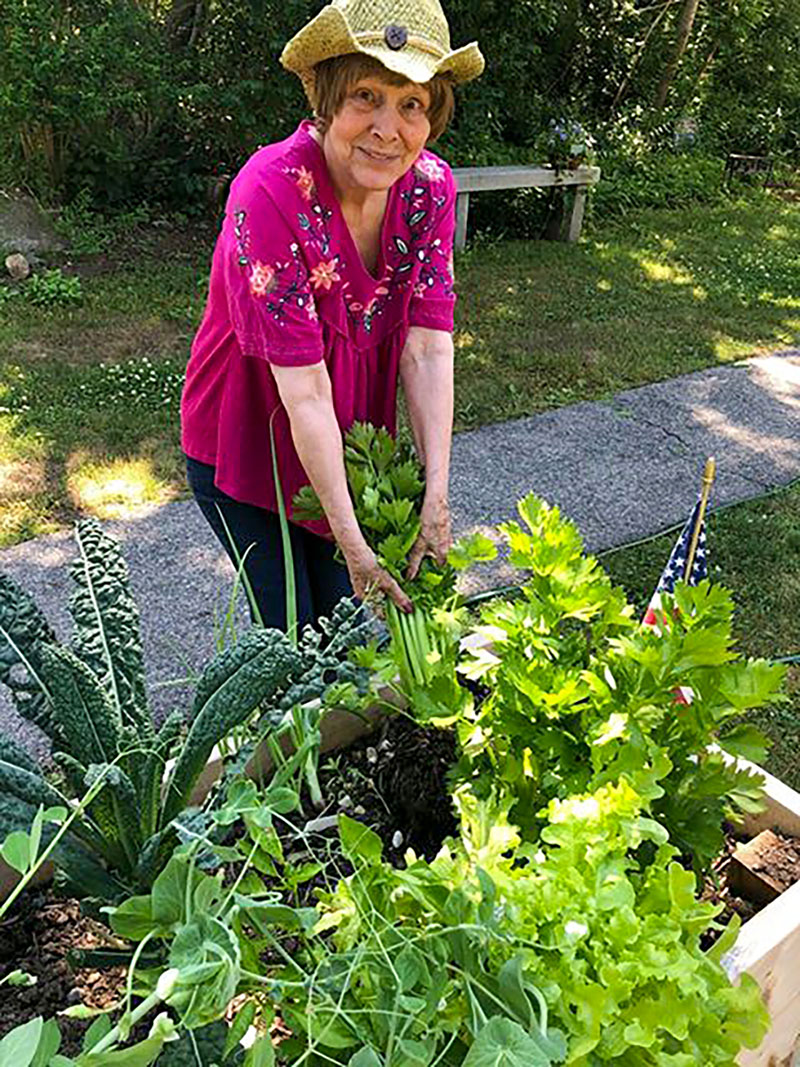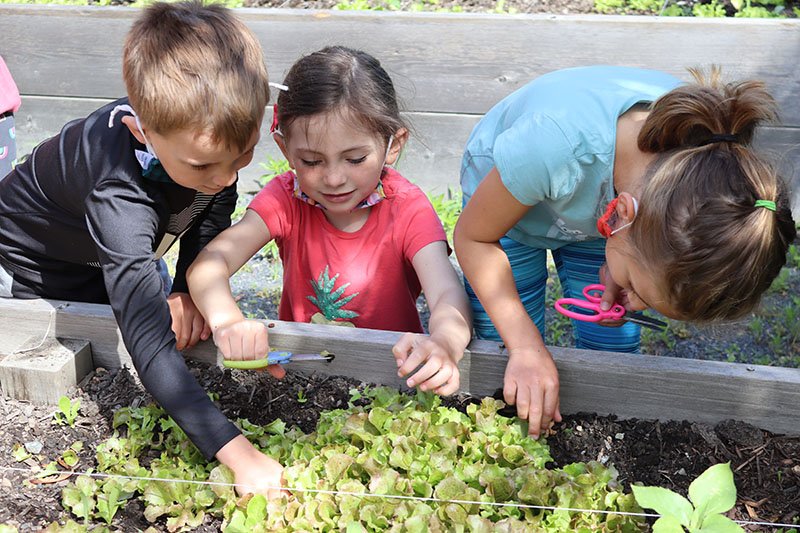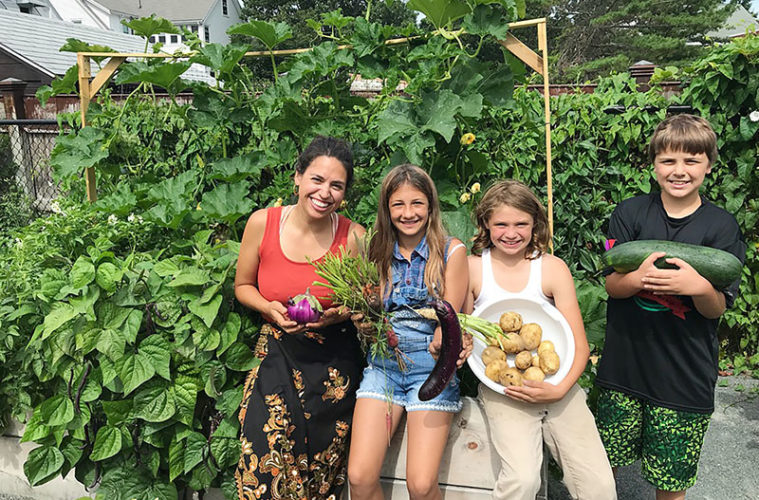Backyard Growers began in 2010 as a small operation with a single, simple goal: to build garden beds for low-income residents so they could experience the financial and psychological benefits of growing their own food. For the first few years, it operated out of founder Lara Lepionka’s Gloucester home.
Over the years, however, the organization’s mission and its reach expanded. Today, Backyard Growers has built and operates six community gardens. It distributes grow bag kits to families in need, so they can grow their own vegetables even with limited space. It runs programs in Gloucester’s five elementary schools, teaching children the basics of gardening, and exposing them to the foods and flavors it can offer.
It has grown from a scrappy, optimistic startup to an influential organization making a difference in the food systems of Cape Ann. And now, Lepionka says, Backyard Growers is ready for its next phase of growth under fresh leadership.
“I’ve realized the things I wanted to do,” Lepionka says. “It can be passed on now.”

So on April 22—Earth Day—she handed over the reins to Beverly native Alison Woitunski DiFiore, a longtime farmer and food systems expert, who worked with Backyard Growers in its early years.
“Lara has done an outstanding job getting Backyard Growers where it is now—it’s a community asset,” DiFiore says. “It’s great, and I love the team already.”
Backyard Growers began, quite literally, in Lepionka’s backyard. In 2008, the economy was in turmoil, Lepionka and her husband were underemployed, and money was tight. So they decided to see how much of their own food they could grow. Before long, much of their 1/16-acre yard was covered in garden beds sprouting greens and beans and tomatoes. The project saved money and had emotional benefits as well.
“I just wanted to feel like I had some agency in this universe, like I am not a victim to the circumstances around me,” Lepionka says. “It just made our lives richer.”
After two years of learning and developing a network of community connections, she launched Backyard Growers, originally under the umbrella of the Cape Ann Farmers Market. After three years building backyard gardens, the group began to expand its offerings and, in the process, became a well-known community resource in Gloucester.


At the Open Door food pantry in Gloucester, Backyard Growers built 12 garden beds, which today supply the facility’s kitchen with herbs and vegetables for the community meals it prepares for curbside pickup.
“We couldn’t have done it as well without Backyard Growers,” said Open Door executive director Julie LaFontaine. “What they do best is grow food, what we do best is distribute food—it was a match made in heaven.”
In the early days, the organization worked often with partner groups, like The Food Project in Lynn, which is how DiFiore was first introduced to Lepionka and her fledgling nonprofit. Right out of college, DiFiore took a job at The Food Project. Her youth crew helped Backyard Growers build some of its earliest garden beds, including those at the Open Door.
After a few years she moved on to work on a local farm. She then ended up on a small vegetable farm in a remote part of Hawaii, helping the landowners restore the fallow land to productivity using sustainable practices. After that she headed to Southern California to manage the first coffee farm in the continental United States. She then joined an agricultural technology firm, directing its small farms division.

Throughout it all, DiFirore and Lepionka remained friends and kept in touch. So when Lepionka began considering possible successors, DiFiore immediately came to mind.
“I can’t think of a better scenario for Backyard Growers,” Lepionka says. “Alison knows us so well, she brings so much technical expertise, and she’s got so many great connections in the community.”
DiFiore jumped at the opportunity.
Right now she is still in the transition phase, soaking up the details of the organization and how it runs. But she has dreams of helping spread Backyard Growers’ influence well beyond Cape Ann. The organization already has a small consulting arm, sharing its methodology and curriculum for school programs. DiFiore wants to find ways to expand this part of the operation and replicate the organization’s success with school programs nationwide.
“What Backyard Growers has is this very special formula for school gardens,” she says. “I just think there’s so much potential to be doing that on a larger scale.”
As for Lepionka, she plans to head to Malta for a three-week artist residency, then travel extensively through England. When she returns home, she will decide what’s next; the field of climate change mitigation is interesting, she says.
“It’s been an epic learning curve for me,” Lepionka says. “Now I’m ready to learn something new.”
CONTACT backyardgrowers.org

